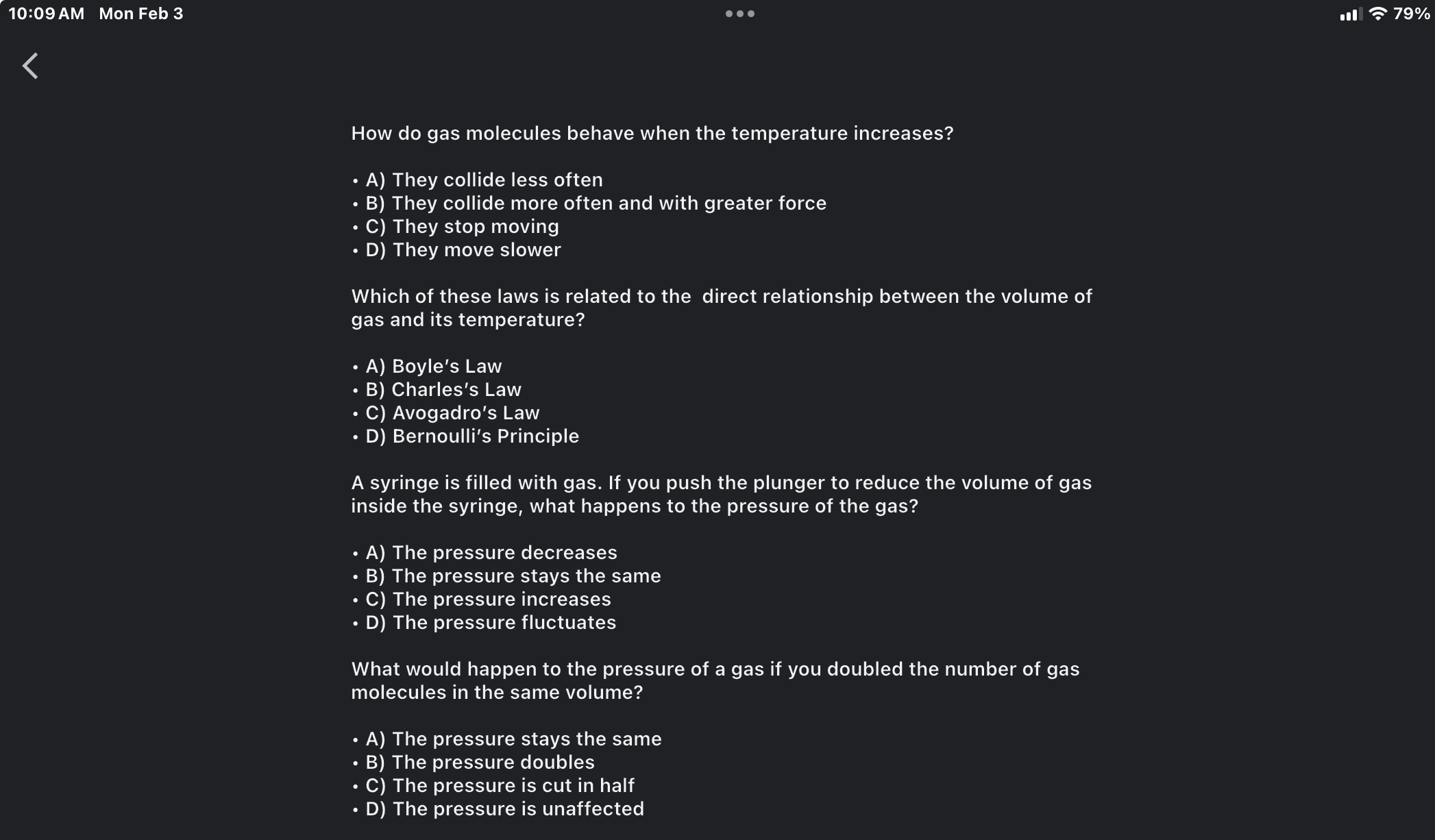How do gas molecules behave when the temperature increases? Which of these laws is related to the direct relationship between the volume of gas and its temperature? A syringe is fi... How do gas molecules behave when the temperature increases? Which of these laws is related to the direct relationship between the volume of gas and its temperature? A syringe is filled with gas. If you push the plunger to reduce the volume of gas inside the syringe, what happens to the pressure of the gas? What would happen to the pressure of a gas if you doubled the number of gas molecules in the same volume?

Understand the Problem
The question set is asking about the behavior of gas molecules in different scenarios, including their movement with temperature changes and the relationship between volume and pressure in gas laws.
Answer
1) B) They collide more often and with greater force. 2) B) Charles's Law. 3) C) The pressure increases. 4) B) The pressure doubles.
["The final answer is: Gas molecules collide more often and with greater force when the temperature increases. Charles's Law relates to the direct relationship between the volume of gas and its temperature. If the plunger is pushed to reduce the volume of gas, the pressure increases. Doubling the number of gas molecules in the same volume doubles the pressure.","B) They collide more often and with greater force.","B) Charles's Law.","C) The pressure increases.","B) The pressure doubles."]
Answer for screen readers
["The final answer is: Gas molecules collide more often and with greater force when the temperature increases. Charles's Law relates to the direct relationship between the volume of gas and its temperature. If the plunger is pushed to reduce the volume of gas, the pressure increases. Doubling the number of gas molecules in the same volume doubles the pressure.","B) They collide more often and with greater force.","B) Charles's Law.","C) The pressure increases.","B) The pressure doubles."]
More Information
As temperature increases, gas molecules move faster and collide more frequently, causing greater force interactions. Charles's Law explains the direct proportionality between temperature and volume, assuming constant pressure. Boyle's Law describes the inverse relationship between pressure and volume. Pressure increases with more molecules at the same volume due to more frequent collisions.
Tips
Common mistakes include confusing the different gas laws. Remember: Boyle's Law is about pressure and volume, Charles's Law is for volume and temperature, and Avogadro's Law is for volume and number of molecules.
Sources
- Relating Pressure, Volume, Amount, and Temperature: The Ideal Gas Law - courses.lumenlearning.com
- Gas Laws - chem.fsu.edu
- What happens to the pressure inside a sealed syringe of gas as the volume of the syringe decreases - homework.study.com
AI-generated content may contain errors. Please verify critical information